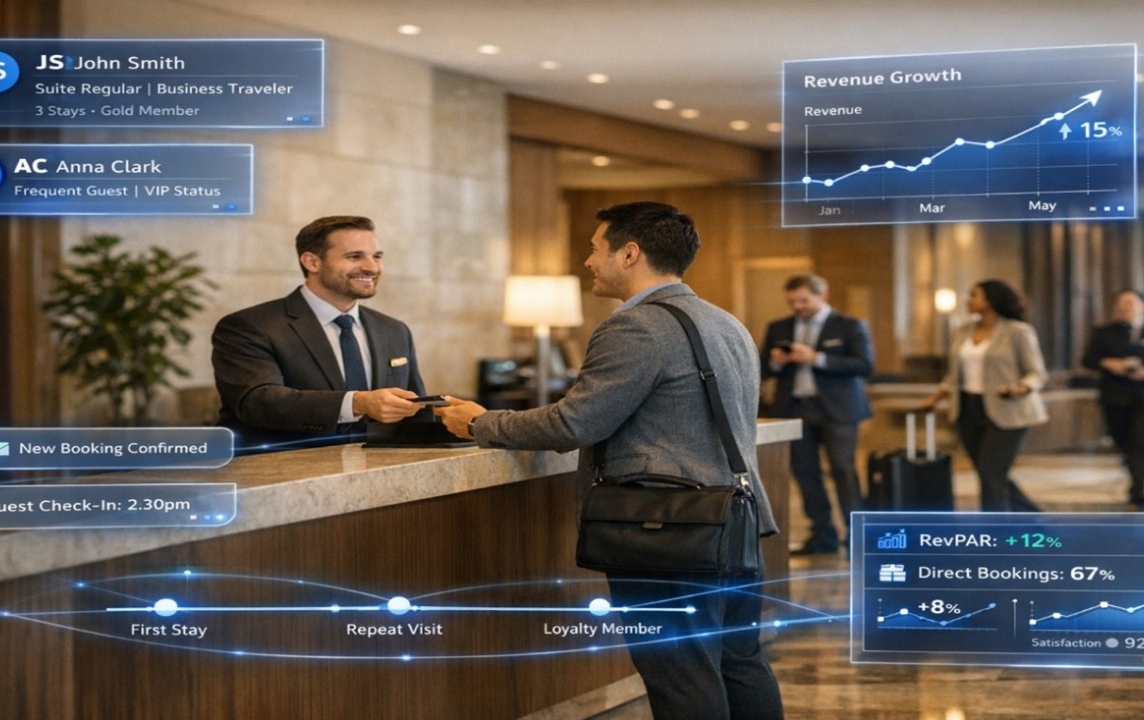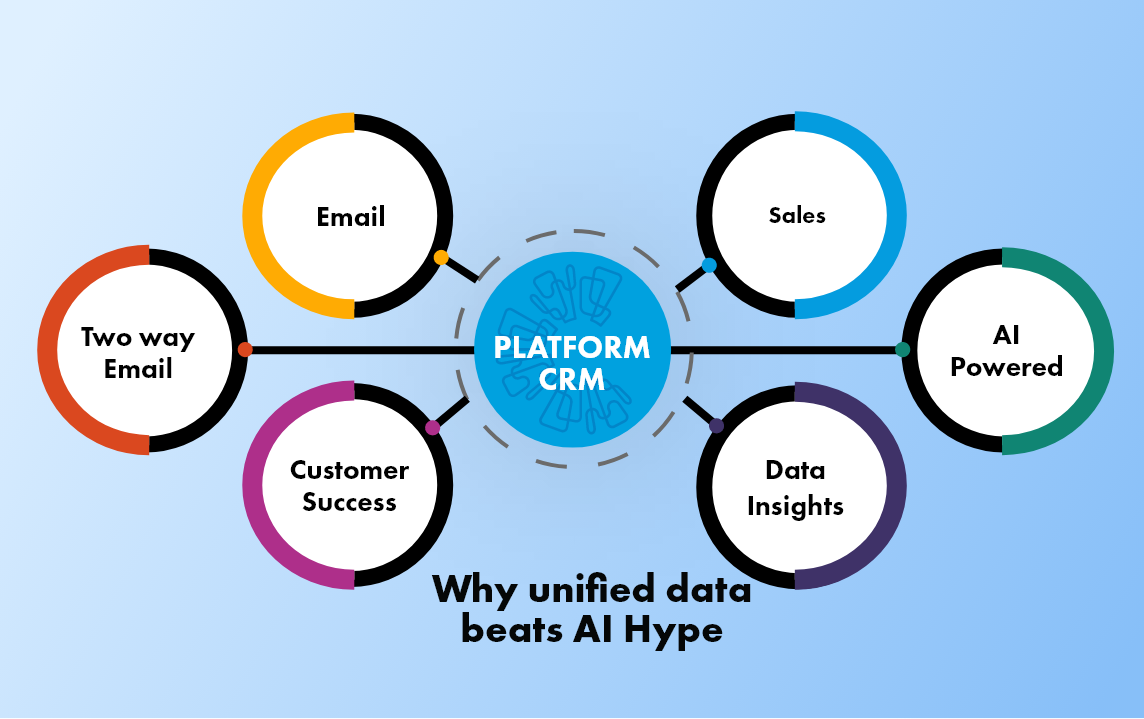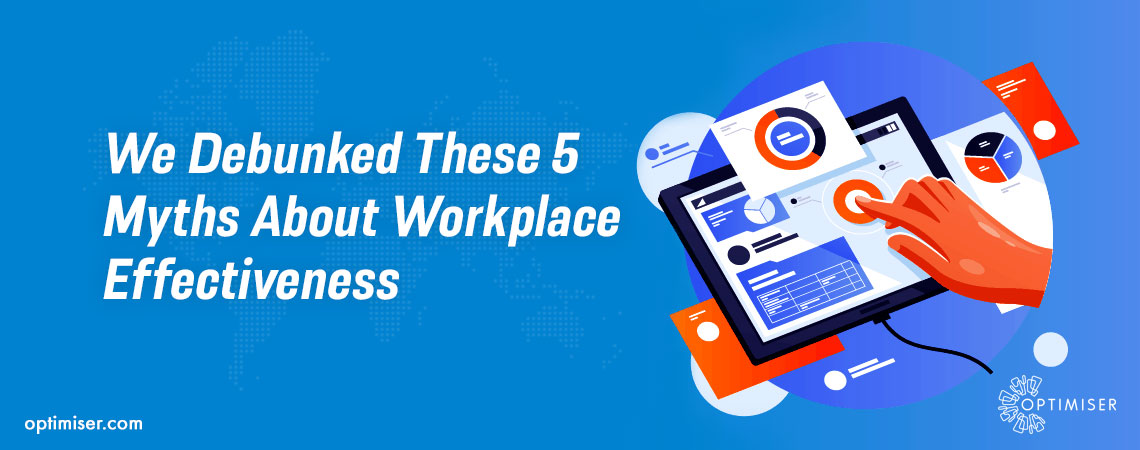
We Debunked These 5 Myths About Workplace Effectiveness
Workplace myths have plagued organisations' work culture negatively in ways that are not immediately visible. After the Covid-19 pandemic, the biggest myth that was busted was: remote working is not efficient. Organisations have witnessed a sharp rise in productivity. Many have seen profits increase even with a pandemic plaguing the world. From using productivity tools like Optimiser CRM to engaging with employees regularly, they have ensured that they are connected and collaborative.
Common myths about workplace effectiveness
Number 1: Open Offices
It is commonly believed that if the employees are placed in an open space where they are working with 10 other employees who are busy tapping away, they will be more productive. Plus, it also saves money on building cubicles for the employees.
The myth is that office space is far more effective and bound to be more collaborative.
You will be shocked to know that such is not the case. Private spaces for working boosts concentration more than working in an environment where everyone is busy doing something. Even the slightest sound can distract the employees and make them forget things they were completely focused on. As per the Harvard Business Review study, there was a 70 per cent drop in the face-to-face interactions between employees once the companies switched to open offices.
If Covid has taught the businesses anything, open offices are not ideal for every employee.
One can certainly find the middle ground where the employees will have their private space that will be cost-effective for the company.
Keep the employees spread out and provide a little cover to ensure that the quiet is maintained. That will keep the employees focused and productive.
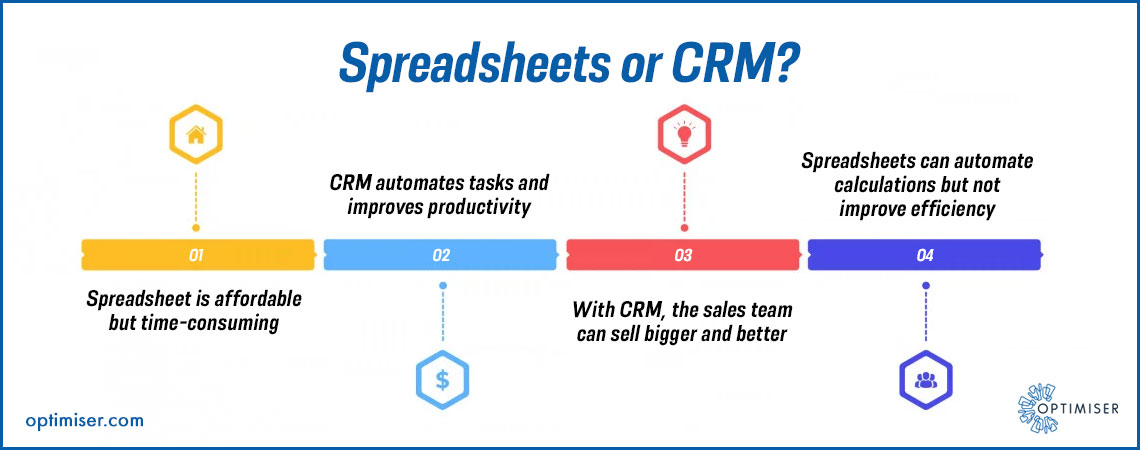
Number 2: Remote Workers Myth
Believing that remote working is less engaging and effective is outdated now. It has been proven that remote working is far more effective than working in an office. Your employees will not laze around in their bathrobes while binging on Netflix rather than finishing the tasks assigned to them. As per a Capterra study in July 2020, more than 84 per cent of employees were extremely happy with the remote working conditions. It has allowed them to garner a healthy work-life balance situation that they could not establish before and be more productive in their assigned workspace within a safe and sound environment.
You will not have to focus much on what the employees are doing at every minute but on the fact that they are getting the work done and accomplishing much more. The time employees previously devoted to travelling from office to their homes is now being given to the company's work by many.
All one needs to do is engage with the employees remotely and keep track of their progress. Every employee will have a different work standard, accompanied by a unique pro-active strategy that will keep them focused on their work.
Number 3: More Work More effective employees
Piling anyone with work is never a good idea. It is a popular notion that the more work the employee will have, the more productive they will be. They should have something to do at all times, and this is far from the truth. In fact, this is more damaging than helpful.
Giving the employees more work will lead to inevitable burnout that will lead them towards demotivation. They will quickly lose passion and interest in the job and will be stressed all the time. The quality of work will decline, and the company will be hit.
Employees with less work tend to be more productive and proactive. They will have a proper schedule that is not choked with too much work and will not be a reason for constant anxiety. They will have time to take breaks to refresh themselves and focus on the tasks assigned with full attention. The quality of work is likely to improve as well as the mental health of the employees will not be hit.
Number 4: First to arrive and last to leave
Coming on time and leaving late should not be the benchmark that decides whether the employee is effective or not. This is a wild standard to set for your employees. An employee who arrives and leaves on time can be far more efficient than one who comes early and leaves late.
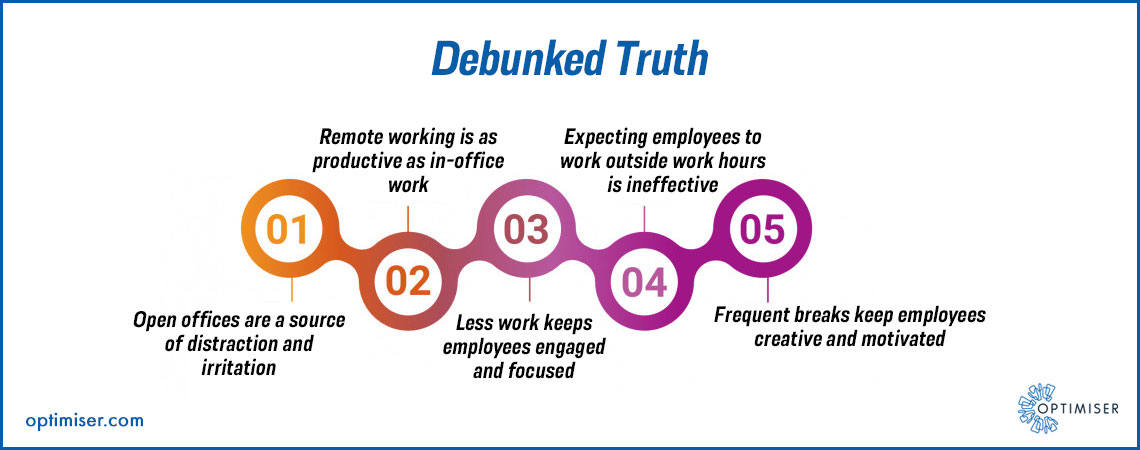
For remote workers, expecting them to send the emails at unprecedented hours when the moon is at night is unrealistic. Overworking the employees simply because they do not have to travel anymore will lead to imminent burnout.
While in the case of small businesses, there are times when there are early morning meetings and late-night documentation, but it should not be encouraged even then. Setting a boundary between work life and home life is extremely important.
To ensure that the work is done within the assigned work hours, one can use a CRM solution like Optimiser. It allows managers to schedule the tasks and manage deadlines with ease. The work can be planned strategically so that the projects can be done systematically, which will minimise the chances of burnout. Socialise with the employees using the quick view calendar to see when they are free and catch up with them to ease their minds.
Number 5: Frequent Breaks are counterproductive
Running for a coffee between work or getting away from the laptop to rest one's eyes will not make the employees unproductive. Without short breaks in between, the employees are not working efficiently, and they are grinding mindlessly. When they take time away from the screen and rest their minds, they can replenish their motivation, make better decisions, and retain more data. It will aid them in increasing productivity and thinking more creatively.
Summary
Given the hybrid nature of work following the pandemic, companies have been focused on employee re-entry. Some have enjoyed the work from home set up thoroughly and so much that they wish to continue with it. Every company has its set of targets and a set of employees that are goal-focused but work differently. To sync up their productivity, one has to invest a little.

30 days free trial. No credit card required
 One powerful platform
One powerful platform
 Simple to use
Simple to use
 Comprehensive
Comprehensive

